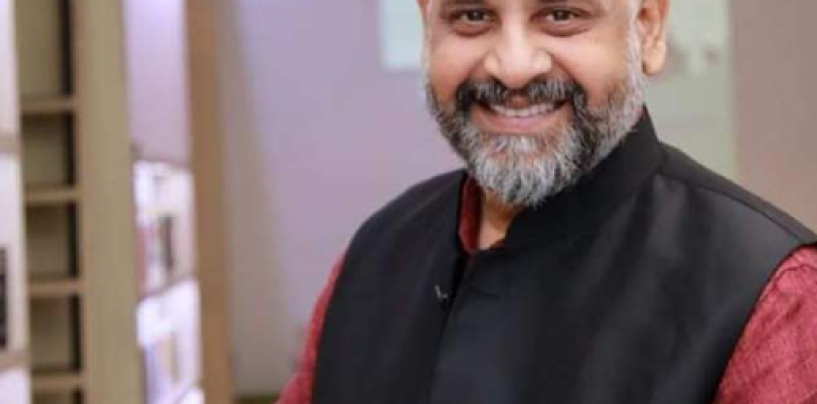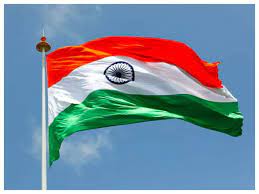Vadhan is a prolific reader who turned to writing a few years ago. His first published book is Shatru, a prequel to his yet unpublished fantasy Series. Shatru sets the stage for a tale based on Indian mythology in which the universe is at risk from a primordial evil leaping through time continuum’s.
His second book, Agniputr: When Agni First Spoke, is hailed as one of the best multi-genre thrillers by some of India’s leading national newspapers, literary platforms, critics and top-end bloggers. Agniputr threads through fantasy, science, law, politics and philosophy to deliver an edge-of-the-seat entertainer. Vadhan is a lawyer by qualification and Director responsible for regulatory risk practice in the world’s largest professional services firm.
Here is the Q&A’s for Vadhan’s interview.
Why do you think there is an increasing lack of faith in law? even the highest court faces a lack of trust.
Firstly, thank you for giving me the opportunity to voice my views. In my opinion this is a very sensitive question. There is no substance to establish that we have lost faith in law. In fact, there is a lot of cleaning up that has happened in the last 5 years. There is a lot of transparency introduced into the public systems that was lacking earlier.
What is law? It is best described as societal guidelines to ensure common good. There are two sides to it, implementation of law and compliance with the law. A citizen’s minimum guarantee to a democratic society is compliance with the law. When there is defiance to the law of the land it will cause unrest. Every country in the world is only as good as its laws and compliance with it. In fact, in the recent past, the highest court of the land has been proactive and has stepped in several times in interpreting as well as providing clarity on compliance with the law. The root cause really is the attitude of certain sections, be it the effluent or the politically motivated, which intends to misinterpret the law to give it a wrong color coding to suit their own ends and to mislead the gullible common man.
Secondly, it is important for people not to think they are above the law. No one is really above the law. A democratic society functions are based on strong fundamentals enforced by institutions. For instance, the last word in investigation is the CBI. The quality of work of the NHAI is another example. ISRO and the tremendous work it has done till now instills faith in it. That is known as institutionalizing the principles of democracy. It is important to restore faith in public institutions. If we don’t, the alternative is harnessing and unleashing power. While institutions follow processes, power is unfettered and functions based on the impact of backlash if it is questioned. As a democratic country, we must work towards building our institutions and running the country based on the fundamental pillars of those institutions.
Does fear of God have to play a positive or a negative role in the ability to establish order of law?
In a country that believes in a divine largess and the positive nature of divinity, Fear of God is a deterrent against misuse of power. Is it really effective? I leave the question open. There are God men and people of influence who have used the divine largess to profit and control the mind of people to do their bidding. In our own culture as also that of others, people who sinned are known to face the wrath of God. Hence, logically such sinners must have fear of God. The surmise of my book, ‘Fear of God’ is to reinstate faith in law.
Your book fear of God high- lights this aspect of growing vigilantism. Does it in some way justify it with someone taking law in their own hands to bring justice?
Let me make it clear. Fear of God does not encourage vigilantism. Vigilantism can be defined a violent reaction to societal injustice and dysfunctional law. Ours is a country abiding by the rule of law. We have a justice delivery system. Is it the best? No. Not yet. But we are getting there faster than we can imagine.
The protagonist of my book insists that one has to be obey the law to be protected by it. If one breaks the law, one must be answerable to it. If you consider yourself to be above the law then there is only fear of God. There- fore, there is attack on corruption and the corrupted. The book only encourages obedience to the law. Do we need Fear of God to ensure that obedience? Defiance to the law will destroy civil society. Cheating the public exchequer, abusing public funds for private gains, using public institutions for personal purposes, not delivering public services, corrupting democratic institutions, these are signs of defiance to the law. The purpose of ‘Fear of God’ in the book is to remove the decay. The book doesn’t set out to propagate vigilantism. In fact it implores to obey the law. First and foremost it is a book of fiction; it is a thriller and an entertainer. If there is a lesson to be learnt (which is entirely up to the reader), it is that above every- thing else is law and obedience to it is the bedrock on which democratic society rests. If you think you are above the law, then there is only Fear of God!
There is a general sense of mistrust among people, lack of trust in authority, the government, each other. what do you think is the reason behind it?
I would peg the general sense of mistrust, if at all, that the people may have on the lost years of independent India when a despotic few controlled the way in which people felt or thought. I would blame it on manipulative coalition politics that forgot its mandate (if it had any at all) and lived for itself rather than the people who delivered a fractured and confused vote. I would blame it on those square kegs that tried to plug round holes. Gaining back the trust of the people inflicted with the injury by such manipulative few is a task. In the last few years, I have only seen a growing respect for the country, a growing sense of unity and dignity for everything Indian and for India.
“The protagonist of my book insists that one has to be obey the law to be protected by it. If one breaks the law, one must be answerable to it. If you consider yourself to be above the law then there is only fear of God.”
Last many months have continued to see people taking law in their own hands. More recently with lockdown situation, there have been such episodes. what do you think is the reason?
Firstly, the average Indian, whether educated or otherwise, is a person who wants to grow in life. I believe that is the mental makeup of an Indian today. Therefore, those who are ‘taking law into their own hands’ are those few who think they are entitled to more than the average Indian. That is my honest opinion. What gives them the right to such entitlement is not something altogether clear. When a policeman stopped a crowd from entering a marketplace without proper passes during COVID- 19 lock down in Patiala, they chopped of his hand! People attack doctors who are the front line soldiers in the battle against a global pandemic. These are signs of entitlement. ‘How dare you work on a COVID patient and step into my locality?’ These are signs of people who think they are above the law. To generalise it would not only be unfair to the average Indian, it would be criminal. When successive governments in the past have given in to influential lobbyists to secure the rights of the few to the detriment of many, for such ‘entitled’ individuals to come to terms with the fact that they are not ‘entitled’ any- more is a difficult task. We can only offer them pity. Not even sympathy.
Your book is going to be made into a movie. how do you perceive this new rush or need for books to be made into series or movies?
Well, look at it this way. There is a ready made script right there, already in the public domain and appreciated by people who would love to see it adapted into a movie or a web series. There is already an established connect with the viewers that the film maker can use. So, why not? Movies were always made from adaptations of the books. As the number of readers have gone up, an author’s name and adaptation from a book renders a greater leverage to the film maker and more acceptance from the viewing public. It is a step in the right direction. Changing a book to a movie involves a lot of creative work of script writers, novelists and film makers. I see good times ahead.
In conclusion, I request all of my readers out there to be safe, stay home and stay healthy. Relaxation of lock down conditions is not a ticket to roam around freely. Use it judiciously, for your own safety and for the safety of those who love you.
Inputs from OECEL News Bureau..








 OpinionExpress.In
OpinionExpress.In















Comments (0)